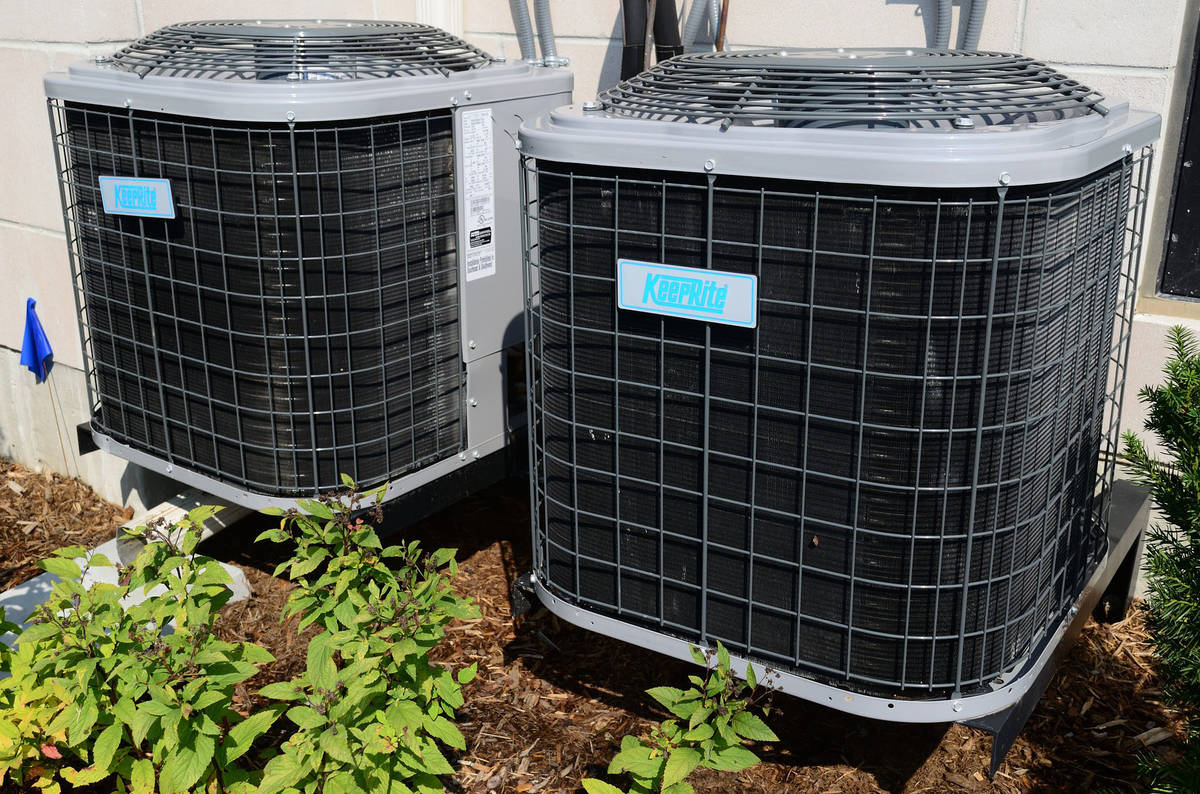Noisy air-conditioning unit shouldn’t be ignored
Many of us may have fired up our air conditioners for the first time this year this week. That cooled air reassures us that we’ll make it through another triple-digit summer. What’s troubling is if our air conditioner suddenly makes strange noises.
The types of sounds an HVAC (heating, ventilation and air conditioning) system makes can be telling as to what the problem is. A pro can know if there’s, say, a buzzing noise, it’s an electrical problem, or a gurgling/bubbling sound, it’s a refrigerant leak or clogged condensate drain line.
Some HVAC noises can be downright alarming, and rightfully so. A very loud high-pitched squealing noise may indicate internal pressure building up in the compressor. Typically a sensor will trigger the unit to shut off if pressure exceeds a certain level. If there isn’t a sensor, or it’s faulty, the pressure could mount to a very dangerous level. If your air conditioner is making this type of screaming noise, shut your air conditioning off immediately and call a professional.
Keep in mind that if your HVAC unit suddenly shuts off, it’s likely for good reason and this safety mechanism is doing its job.
Aside from the screaming squeal described here, if your air conditioner starts making a strange noise, take a moment to do a little investigating before calling in the big guns. As a do-it-yourself proponent, I encourage you to take this step. Sometimes a minor fix and regular maintenance can save you a service call.
Here are general steps to conduct your own exterior HVAC inspection and maintenance.
To clean and maintain the external unit (condenser and compressor):
Warning: Power must be off to the entire HVAC system.
Turn the unit off at the thermostat and at the breaker in the main service panel, or at its dedicated smaller breaker box near the unit.
▶ Clean debris in and around the unit. Your unit should have a 2-foot clearance around it, and 5 feet over it. Remove any plant growth, leaves, etc. To access inside the unit, use a screwdriver and wrench to remove the fan cage on top of the unit. Vacuum or remove by hand any debris. Wipe the fan blades with a damp cloth.
▶ Clean and straighten the fins. Gently vacuum the fins in an up and down motion. Fins bend easily, so do not run anything across them. Spray a fin foaming cleaner; let it sit according to instructions. Gently rinse with a garden hose. Avoid spraying the fan motor. The fins need to be straight in order to keep proper airflow. Use a fin-straightening tool (coil fin brush) to repair them. Foam coil fin cleaners are available in our local hardware stores, but the fin brush would need to be ordered (under $10).
▶ Check that your external HVAC unit is level. Like foundations, they can shift over time. A condenser that isn’t level can cause a compressor to age prematurely. If the unit isn’t level, use rot-resistant shims to raise where needed.
▶ Check that the condensate line is dripping. This line should drain to the outdoors and water should be dripping from it when running your air conditioner. If it’s not dripping, it’s not draining. Clear any clog that may have formed in the pipe from algae or dirt.
When you’ve completed your exterior HVAC maintenance, turn the unit back on, set the thermostat to cool, and listen for any odd noises.
For basic interior HVAC maintenance:
▶ Inspect air vents for any debris (mold, insect or rodent evidence). Remove the cover and examine inside with a flashlight.
▶ Change filters at least twice a year, but more often in dusty environments or if anyone has allergies or respiratory issues.
▶ Inspect ductwork. Look for any obvious tears, examine joints and check all duct tape. Turn the unit on full blast and run your damp hand over these areas to feel for leaks.
Should any of these checks or maintenances leave you scratching your head in confusion or holding your ears from noises, contact an HVAC repair service ASAP. Keep cool and carry on.
Norma Vally is a seasoned veteran of home improvement; her career includes four seasons as host of Discovery Home Channel’s Emmy-nominated series “Toolbelt Diva.” A columnist and author, Vally splits her time in Southern Nevada, Los Angeles and New York City. Follow her on Facebook at Norma Vally “Toolbelt Diva” and visit her at www.NormaVally.com. Email Norma@NormaVally.com.








